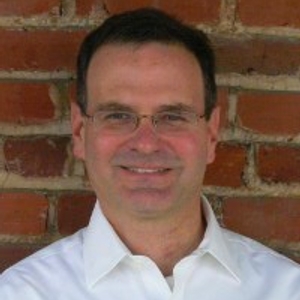 Our friends over at Transition Voice posted what we feel is among the most engaging book reviews we’ve ever come across. Are we biased? Maybe. But Erik Curren sure has a way with words. Read for yourself…
Our friends over at Transition Voice posted what we feel is among the most engaging book reviews we’ve ever come across. Are we biased? Maybe. But Erik Curren sure has a way with words. Read for yourself…
BOOK REVIEW
Edited by Richard Heinberg and Daniel Lerch
Watershed Media, 523 pp, $21.95
The Chicago Book of Style
The Post Carbon Reader feels like a Chicago book. I know that it’s really a West Coast production, with its eponymous institute located north of the San Francisco Bay area. But this book forsakes the Cassandra cry of a Berkeley activist at a giant redwood tree-sit. Likewise missing is the smooth scenario-spinning of a Silicon Valley venture capitalist at a TED conference. Instead, the 500-page volume shows an outsized ambition to present all areas of practical human knowledge from the viewpoint of peak oil. It’s an encyclopedia that seems more at home among the leering gargoyles and faux-Gothic spires of Hyde Park than on the sun-kissed lanes of Sonoma wine country.
Co-editor Daniel Lerch apologizes for what the volume had to leave out, namely “chapters on media and communications, for example, to explore how action on even ‘no brainer’ issues like climate change and peak fossil fuels all too often lives or dies by money and politics, not science and the common good.” Curiously, Lerch says he also misses a chapter on local post-carbon transportation including walking and biking, though Richard Gilbert and Anthony Perl stand up nicely for rail and electric vehicles in their piece “Transportation in the Post-Carbon World.”
In any event, this volume should not make any apologies for being too short or lacking in scope. Its 34 essays by two dozen authors impressively cover subjects likely to be both old and new to readers who follow peak oil, climate change and the economic crisis. Finishing The Post Carbon Reader can give you the same sense of accomplishment as if you’d polished off Aristotle’s Poetics, Gargantua and Pantagruel and the Philosophiæ Naturalis Principia Mathematica between dinner and bedtime. It’s like graduating from Post-Carbon University. And all without the student loans…
Peak-thinking on new subjects
For me, most exciting were the essays that traveled beyond the well worn sustainability paths of wildlife, food, water and energy.
“Climate Change, Peak Oil, and The End of Waste,” is the best thing I’ve seen on garbage outside of Annie Leonard’s web video The Story of Stuff, to which the essay’s authors, both recycling activists, rightly pay homage. Like any skilled essayists, they show how their subject is central to some bigger issues that you may never have thought about. In this case, it turns out that products and packaging are bigger contributors to global warming than the two next sources of greenhouse-gas emissions, buildings and transportation, combined. And next time I hear some municipal waste manager beaming about how the local landfill is “green” because it harnesses methane, I’ll know the real story: most of that methane isn’t even burned, but still escapes into the atmosphere. Even worse, the false promise of turning landfill gas into fuel causes cities to make bad decisions such as diverting food scraps from promising new composting programs back into landfills to get a methane payback that may never come.
“Human Health and Well-being in an Era of Energy Scarcity and Climate Change” by Cindy Parker and Brian Schwartz, two public health physicians at Johns Hopkins, may be old hat to people with a background in the field. But for those of us whose experience with healthcare has been limited to private physicians, hospitals, pharmacies and their billing departments, the authors’ holistic discussion of sustainable well-being will probably be eye-opening. I always suspected that human health went beyond prescriptions and MRIs. Now I feel that the authors have given me permission to see factors ranging from employment and income to justice and the law to soils and mineral resources as factors in keeping people well or making them sick.
The two essays on education are thought-provoking. In “Smart by Nature” Michael Stone and Zenobia Barlow talk about how introducing students to hands-on farming and community activism elevated a neglected inner-city elementary school in Burlington, VT into a magnet for kids from around the city. Nancy Lee Wood shows how community colleges could be more relevant than Harvard (or, for that matter, Chicago) in a world that requires fewer investment bankers and drug company sales reps and more organic farmers, solar-panel installers and managers of small-scale local factories…
More hip, more cool
As far as the Post Carbon Institute’s branding, this volume has done its duty to establish the group’s credibility. And I’m sure many other readers will be proud to join me in graduating from Post Carbon University.
Next, I wonder if the PCI might consider a future publication more on the side of accessibility. How about short pamphlets on some of the key issues covered in this volume and not covered much elsewhere, such as post-peak education or healthcare?
The Reader has shown off the great minds of the PCI’s impressive stable of fellows. Now, let’s see their warm hearts. These creative folks could give us fiction, poetry, photography and art to stimulate creative thinking throughout our society. Their genius could help release the genius inside us all.
So, to the Post Carbon Institute, I say fire us up with some Berkeley passion. Seduce us with some Silicon Valley vision. Intoxicate us with the fragrance of a Sonoma Valley vineyard in June.
Whatever it is, I’d love to see their next big effort feel less Chicago and more California. And that’s coming from a true-blue Chicagoan.






